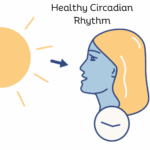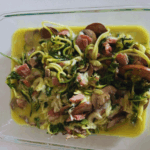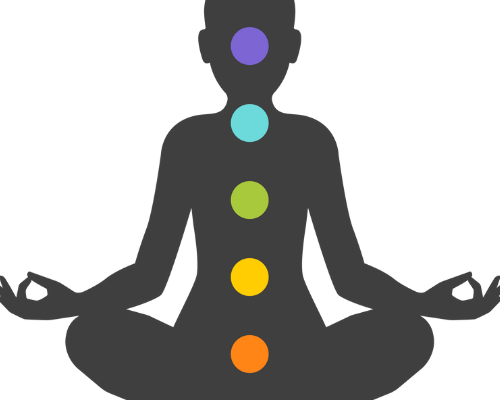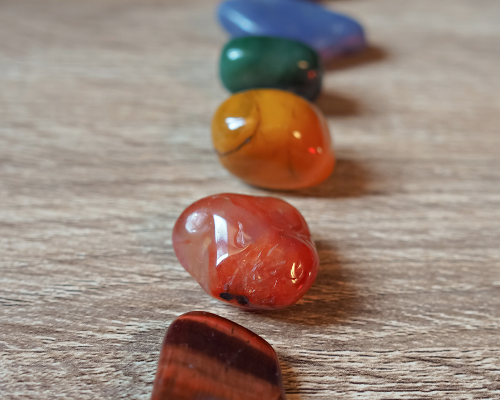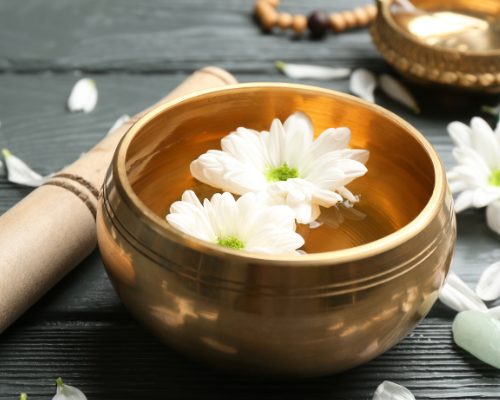Here’s a recap of my recipes containing monkfruit, which has a zero glycemic index, and helps to lower inflammation.
As an Amazon Associate, I earn from qualifying purchases.
Table of Contents
What is MCAS?
Mast Cell Activation Syndrome (MCAS) is a chronic condition that affects all organ systems. It can cause severe, disabling symptoms every day, including potentially fatal anaphylaxis. MCAS often occurs with other chronic conditions like Ehlers-Danlos Syndrome (EDS) and Postural Orthostatic Tachycardia Syndrome (POTS). Managing MCAS is challenging because many healthcare providers are unaware of it, and diagnostic tests can be unreliable. Treatments involve using antihistamines, mast cell stabilizers, and avoiding triggers. Check out this post on how to manage MCAS.
Why monkfruit?
Monk fruit (Luo Han Guo) is a natural sweetener made from the Siraitia grosvenorii fruit.
Monk fruit sweetener does not raise the glycemic index. It has a glycemic index (GI) of zero, meaning it doesn’t cause a spike in blood sugar levels. This makes it a popular choice for:
- People with diabetes
- Those following low-carb or ketogenic diets
- Anyone looking to reduce sugar intake without affecting blood glucose levels
Monk fruit extract gets its sweetness from compounds called mogrosides, which are metabolized differently from regular sugars and do not impact blood glucose.
Just be aware: some commercial monk fruit products are blended with other sweeteners like erythritol or dextrose, which can have different effects on blood sugar (though erythritol also has a GI of zero). Always check the label to know exactly what you’re getting.
In addition, there are benefits of monkfruit for those with MCAS and other chronic illnesses:
- Low Histamine Itself – Monk fruit is generally considered low in histamine and unlikely to trigger histamine release, making it a good sweetener choice for people with histamine intolerance or MCAS.
- Anti-Inflammatory Properties – Some studies suggest that mogrosides (the sweet compounds in monk fruit) have anti-inflammatory and antioxidant effects, which may indirectly support the body in dealing with histamine or inflammation-related symptoms.
- No Fermentation or Aging – Unlike high-histamine foods (aged cheese, alcohol, fermented products), monk fruit is not aged or fermented, which helps keep its histamine level low.
The bucket theory
The bucket theory simplifies understanding symptom reactions with MCAS. Imagine your body as an empty bucket you don’t want to overflow. Reactions to various stimuli fill the histamine bucket at different rates, forming the total histamine level (how full your bucket is). More histamine means more symptoms. By managing triggers, reducing exposures, and taking medications and supplements, you can control your bucket’s level.
Know your typical symptom progression
Knowing your symptom progression in a symptom flare is the key to developing your rescue plan. This post discusses how to recognize your symptom progression so you can be prepared to address those symptoms.
Get my free ebook, symptom log, and meal plan!
Want a tool to easily keep track of your symptoms? Sign up for my newsletter and you will receive my free 50-page ebook of lower-histamine, grain-free, sugar-free recipes, my free symptom log, and a free two-week meal plan!
What about other sweeteners?
Cane sugar, maple sugar, coconut sugar, honey and other natural sugars raise the glycemic index. A raised glycemic index (GI) by itself does not directly cause mast cell activation, but spikes in blood sugar (especially frequent or large ones) can contribute indirectly to mast cell activation and inflammation in people with MCAS and other chronic conditions.
There are a number of artificial sweeteners available, and as I discuss in this post, not all of them are good for you. Stevia has been shown to negatively affect the liver, thyroid, and cholesterol levels. Erythritol is a sugar alcohol, and like others in this group, it can cause gas, bloating, and diarrhea. And, like other sugar alcohols, xylitol can cause bloating, gas, and diarrhea, especially in moderate to large amounts. It is partially absorbed in the small intestine, and the rest ferments in the colon, which is what causes the gastrointestinal side effects.
Here’s a comprehensive table summarizing the pros and cons of common artificial sweeteners, including both synthetic and natural non-nutritive sweeteners like stevia and monk fruit:
| Sweetener | Pros | Cons |
|---|---|---|
| Aspartame | – Very sweet, so small amounts needed – Widely studied- Low calorie | – Not heat-stable (not for baking) – Contains phenylalanine (unsafe for people with PKU) – Possible headaches in sensitive individuals |
| Sucralose (Splenda) | – Heat-stable (good for baking) – Very sweet- Doesn’t raise blood sugar | – May affect gut microbiome – Some studies suggest possible health risks in high doses |
| Saccharin | – Long shelf life- Zero calorie | – Bitter aftertaste – Early animal studies suggested cancer risk (later refuted for humans) |
| Acesulfame K | – Often blended with other sweeteners – Heat-stable | – Some studies suggest potential concerns with long-term use – Slight aftertaste |
| Stevia | – Natural origin- Zero glycemic impact- Antioxidant properties | – Bitter/licorice aftertaste for some – Quality varies across brands |
| Monk Fruit | – Natural- Zero calorie and glycemic impact – No known side effects | – Expensive – Often blended with other sweeteners (check labels) |
| Erythritol | – Zero glycemic impact – Tooth-friendly – Mild taste | – May cause bloating or gas in large amounts |
| Xylitol | – Good for dental health – Low glycemic index | – Causes digestive upset in some – Extremely toxic to dogs |
| Allulose | – Tastes like sugar – Low calorie- Minimal impact on blood sugar | – Can cause bloating/gas- Expensive and not widely available |
Here’s my list of monkfruit recipes!
My favorite sweetener is monk fruit because it doesn’t raise the glycemic index, it contains no sugar alcohols, and it doesn’t cause my symptoms to flare. I’ve created dozens of recipes that use monkfruit, and in particular, Choc Zero sweeteners, because they are easy to use and taste good. I also like Choc Zero cookies like these and these when I don’t feel like baking!
Here’s my list of monkfruit-sweetened recipes:
Sugar Free Rocky Road Ice Cream
Cassava Chocolate Chip Muffins
Check out these circadian health tools!
I’m an affiliate with Bon Charge, a company that makes tools for circadian health, and you can receive 15% off your order with my coupon code BETSYL.
Bon Charge offers tools such as yellow and red-tone blue-blocking glasses, red light therapy devices, PEMF mats, infrared saunas, and EMF blocking products.
Sign up for the SSP!
If you are dealing with chronic illness, concussions, or trauma, the Safe and Sound Protocol (SSP) is a listening therapy based on Polyvagal Theory that helps heal nervous system dysregulation. Many people with MCAS and other chronic conditions have nervous system dysregulation stemming from infections, toxic exposures, concussions, and trauma. The SSP is an easy-to-use app where you listen to specially filtered music for 30 minutes each day for a 5-hour cycle. Studies show the SSP has a profound effect on mental health and chronic conditions
You can sign up for the SSP here!
Heal your mind!
While the SSP is a bottom-up or somatic therapy for healing the nervous system, the Sacred Self-Healing Method I offer is a top-down nervous system healing modality that focuses on cognition, attention, perception, and emotion, using the mind’s higher functions. The SSP and the Sacred Self-Healing Method complement each other and together produce lasting results.
I provide one-on-one in-person and remote chronic illness and caregiver coaching and Sacred Self-Healing Sessions based on the Sacred Self-Healing Method, a proven novel co-creative healing modality detailed in my Books.
Click here for more information.
Order my books!
Rocks and Roots chronicles my journey solo backpacking the Superior Hiking Trail and overcoming nervous system dysregulation, gut dysbiosis, and Mast Cell Activation Syndrome symptoms to hike 328 miles successfully.
The Sacred Self-Healing Method ebook is available here and in most ebook retailers!
The Sacred Self-Healing Workbook is available for purchase here!
Betsy’s first book, Sacred Self-Healing: Finding Peace Through Forgiveness, is available here
Companion Recordings
The companion audio recordings of chants, guided meditations, and sound healing demonstrations that accompany Sacred Self-Healing: Finding Peace Through Forgiveness are available to download for free here
What do you think?
I’d love to have your reply below!
Disclaimer
The preceding material does not constitute medical advice. This information is for information purposes only and is not intended to be a substitute for professional medical advice, diagnosis, cure or treatment. Always seek advice from your medical doctor.

